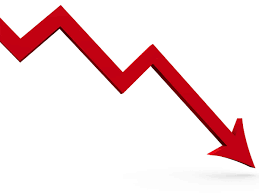Coronavirus Strikes State Gross Receipts
Mike Seals - May 7, 2020 11:13 am

OKLAHOMA CITY – April Gross Receipts to the Treasury plunged by more than half a billion dollars as the coronavirus pandemic disrupts Oklahoma’s economy, State Treasurer Randy McDaniel announced.
Gross receipts in April total $1.08 billion, a drop of $502.5 million, or 31.8 percent, from April 2019.
The economic impact of the pandemic is spread across all major revenue streams, but is most evident in income tax collections due to the postponement of the April 15 filing deadline to July 15. Gross income tax receipts are down by more than 50 percent for the month.
“The state economy is clearly showing the repercussions of the novel coronavirus,” Treasurer McDaniel said. “While the resiliency of Oklahomans is a key source for enduring optimism, the near-term situation is expected to be especially challenging.”
McDaniel pointed out that gross production tax collections have yet to reflect the impact of record low oil prices. Gross production receipts in April are based on oil field activity two months earlier – in February – when oil was still more than $50 per barrel. Even so, collections this month were down by 24 percent from a year earlier.
The average price of oil during April was less than $20 per barrel. The impact of the price crash will begin to be seen in May receipts, but will be more fully realized in June collections.
Combined sales and use tax collections of $430.4 million are down by $44.7 million, or 9.4 percent, indicating a pullback in consumption during April likely due to shelter-in-place policies. Sales taxes, down by $47.3 million, are somewhat offset by a $2.6 million increase in use taxes assessed on out-of-state purchases including online sales.
Economic indicators
The unemployment situation in Oklahoma is rapidly changing. The March jobless rate was listed at 3.1 percent, but the employment survey was taken early in the month before many jobs were lost due to the pandemic.
Since March 15, the Oklahoma Employment Security Commission reports it has paid more than 430,000 jobless claims. In early March, 56,100 Oklahomans were listed as unemployed.
The Oklahoma Business Conditions Index dropped to 34.2 in April, down from 45.7 in March. Numbers below 50 indicate economic contraction is expected during the next three to six months.
April collections
April gross collections total $1.08 billion, down by $502.5 million, or 31.8 percent, from April 2019.
Gross income tax collections, a combination of individual and corporate income taxes, generated $405.8 million, a decrease of $414.4 million, or 50.5 percent, from the previous April.
Individual income tax collections for the month are $368.4 million, down by $325.1 million, or 46.9 percent, from the prior year. Corporate collections are $37.4 million, a decrease of $89.3 million, or 70.5 percent.
Combined sales and use tax collections, including remittances on behalf of cities and counties, total $430.4 million in April. That is $44.7 million, or 9.4 percent, less than April 2019.
Sales tax collections in April total $368.3 million, a drop of $47.3 million, or 11.4 percent from the same month of the prior year. Use tax receipts, collected on out-of-state purchases including online sales, generated $62.1 million, an increase of $2.6 million, or 4.3 percent, over the year.
Gross production taxes on oil and natural gas total $60.7 million in April, a decrease of $19.1 million, or 24 percent, from last April. Compared to March 2020 reports, gross production collections are down by $18.2 million, or 23.1 percent.
Motor vehicle taxes produced $53 million, down by $18.1 million, or 25.5 percent, from the same month of 2019.
Other collections composed of some 60 different sources including taxes on fuel, tobacco, medical marijuana, and alcoholic beverages, produced $129 million during the month. That is $6.2 million, or 4.6 percent, less than last April.
Twelve-month collections
Gross revenue totals $13.22 billion from the past 12 months, May 2019 through April 2020. That is $223.9 million, or 1.7 percent, below collections from the previous 12-month period.
Gross income taxes generated $4.38 billion for the 12 months, reflecting a decrease of $186.7 million, or 4.1 percent, from the prior 12 months.
Individual income tax collections total $3.86 billion, down by $193.1 million, or 4.8 percent, from the prior period. Corporate collections are $524.7 million for the period, an increase of $6.4 million, or 1.2 percent, over the previous 12 months.
Combined sales and use taxes for the 12 months generated $5.52 billion, a decrease of $15.9 million, or 0.3 percent, from the prior period.
Gross sales tax receipts total $4.79 billion, down by $89.4 million, or 1.8 percent, during the period. Use tax collections generated $729.8 million, an increase of $73.5 million, or 11.2 percent, over the previous 12 months.
Oil and gas gross production tax collections brought in $957.3 million during the 12 months, down by $151.9 million, or 13.7 percent, from the previous 12 months.
Motor vehicle collections total $778.2 million for the 12 months. This is a decrease of $12.8 million, or 1.6 percent, from the trailing period.
Other sources generated $1.58 billion, up by $143.5 million, or 10 percent, from the previous period.
About Gross Receipts to the Treasury
The monthly Gross Receipts to the Treasury report, developed by the state treasurer’s office, provides a timely and broad view of the state’s economy.
It is released in conjunction with the General Revenue Fund report from the Office of Management and Enterprise Services, which provides information to state agencies for budgetary planning purposes.
The General Revenue Fund, the state’s main operating account, receives less than half of the state’s gross receipts with the remainder paid in rebates and refunds, remitted to cities and counties, and apportioned to other state funds.



